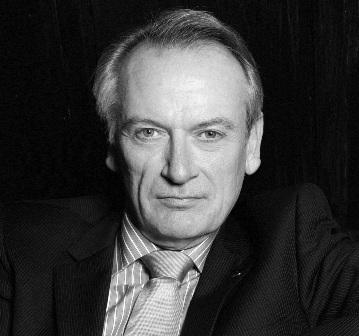If You Liked It Then You Should Have Put a Chain on It

- Chris Skinner , Chairman at Financial Services Club
- 03.04.2017 11:45 am Blockchain , Chris Skinner is known as an independent commentator on the financial markets and fintech through his blog, the Finanser.com, as author of the bestselling bookDigital Bank and its new sequel ValueWeb. In his day job, he is Chair of the European networking forum: the Financial Services Club. He is on the Advisory Boards of many companies including Innovate Finance, Moven and Meniga, and has been voted one of the most influential people in banking by The Financial Brand (as well as one of the best blogs), a FinTech Titan (Next Bank), one of the Fintech Leaders you need to follow (City AM, Deluxe and Jax Finance), one of the Top 5 most influential people on BankInfoSecurity’s list of information security leaders, as well as one of the Top 40 most influential people in financial technology by theWall Street Journal’s Financial News.
I tweeted this the other day, and it got a lot of likes, so I thought I’d make it today’s blog title. We seem to have lost a lot of buzz on blockchain this year, even thought it’s still buzzing away as much as ever before. I recently was talking about how blockchain is great for IslamTech, as Islamic financial instruments have different degrees of compliance with Sharia Law, dependent upon the Imams who authorise the product. In some countries, their interpretations of usury and leverage are different to others, and a shared ledger would be a great way of bringing transparency to the area.
Equally, whilst in Dubai, I was hugely impressed with their commitment to shared ledger technologies, with the Government announcing that all government contracts would be blockchain-powered by 2020. From October 2016:
The Crown Prince of Dubai announced a strategic plan today that would see all government documents secured on a blockchain by 2020. In remarks, Sheikh Hamdan bin Mohammed bin Rashid Al Maktoum explained the effort is part of a larger bid by the emirate, one of seven in the larger UAE, to set the “standard” for smart cities. He said:
“The emirate is building on that achievement by constantly working to foresee the future and keep up with the fourth industrial revolution and all the prospects of increased efficiency that come along with it.”
According to a statement, the Dubai government estimates its blockchain strategy has the potential to generate 25.1 million hours of economic productivity each year in savings, while reducing CO2 emissions.
This was followed by the news in March 2017 that they’ve selected IBM and Consensys to do the work so that anyone working for or with the Dubai authorities, all benefits to citizens and all identification information would all be ledger based in three years. The goal is to become paperless by shifting all transactions to blockchain – an online encrypted database – by 2020. Amazing, and don’t doubt they will do it as this is a country that has risen from nothing in 15 years to become a leading tourist, commercial and financial centre, with their brethren in Abu Dhabi, Bahrain and Qatar following close behind.
Meantime, I think the reason why blockchain news has quieted is that people are actually working on it. It’s no longer the hype, talk and bustle of blockchain ideas, but the quiet getting on and doing it. Here’s just a few headlines in the past few weeks:
- The Impact of Blockchain on Trade Finance, and Cybersecurity
- Blockchain Is Helping Us Feed the World’s Hungriest Families
- Forget Bitcoin. The Blockchain Could Reveal What’s True Today and …
- Blockchain: How data acceleration makes it more secure
- Why blockchain is about to change finance as you know it
- Blockchain Is Bubbling Up As A Solution To The Supply Chain’s …
- How MetaX Plans To Use Blockchain To Stop Ad Fraud
- IBM unveils Blockchain as a Service based on open source …
- Blockchain Tech Has Never Been More Valuable or More Ready for …
- The new building block(chain) of health care records management
- Here’s why the finance sector loves blockchain so much
- Deloitte: Blockchain can transform emerging ‘trust economy’
- Blockchain the perfect data protection tool for banks using mainframes
- Could blockchain be the operating system of the cities of the future?
However, a lot of blockchain hype has been around areas that I feel are not right, such as clearing and settlement. Clearing and settlement is an industry issue of agreements between governments, central banks and their counterparties about how risk is managed between financial firms. It’s not about a technology. Until the governance discussions are ironed out about how custodians, clearers, counterparty banks, central banks and regulators are resolved, there is no clearing and settlement shared ledger implementation.
Equally, a lot of blockchain hype muddied the waters. After all you can be blockchain-inspired but don’t need to use a blockchain, as R3 made clear.
Finally, much confusion abounds in this space as it’s pretty technical – ask the average banker to explain the difference between Ethereum and Bitcoin; a shared ledger and a blockchain; and how consensus mechanism operate; and their faces will normally crumble into grief. Don’t go there.
So, there is a lot happening in the blockchain space folks. It’s just that we’eve gone past the hype into the trough of disillusionment whilst people are just getting on with it, and changing the world.
“We always overestimate the change that will occur in the next two years and underestimate the change that will occur in the next ten. Don’t let yourself be lulled into inaction.” Bill Gates


























